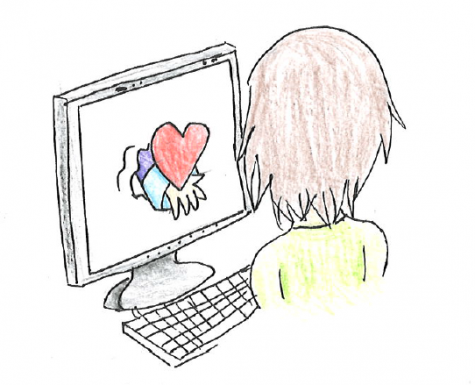You’re on the last lap in Mario Kart, hanging onto first place. The music starts to pick up as your sibling starts to yell, excited that you might win. The finish line is only one turn away and with it the trophy. You can’t lose now with only 9 seconds to go. You live for this part of video games, the thrill that comes with competition.
But life on the other side of the controller is different.
Video games play a major role in popular culture, but all we see is the final product. After a game is released, video game professionals spend time making edits or add-ons to the previous game and start working on the upcoming one.
Several months to a year before the ship date of a game is crunch time. Crunch time comes with a lot of stress on the video game employees due to the build-up of important deadlines and extra hours needed to complete their work.
Cody Davis*, a past Activision employee, said, “A typical day for an animator is usually going to be 10 hours, and if you work 10 hour days, it’s the most beneficial for everyone around. You get a little extra money on the back end for overtime.”
Although the extra money is a nice bonus, that’s not the reason most people put in the extra effort.
“The project gets a little more love. It lets everyone else know that you’re also part of the team and care about your work because everyone else is usually staying nine to 10 hours,” Davis said.
On the downside, all the extra hours worked during crunch time can have negative effects on the professionals of the game industry.
Amelia Wilson*, an animator who worked for EA, said, “Once the crunch time starts my personal time kind of goes away. I’ll have a hard time going to bed at night because I’ll get home at midnight, and my brain just keeps going when I get home so I can’t sleep. I also get frustrated really easily.”
In an interview for Vulture, Dan Houser, the co-founder of Rockstar Games revealed that they were working 100 hour weeks in order to finish their new game Red Dead Redemption on time. He later clarified in an interview with Kotaku that it was solely the higher-ups that volunteered to work overtime in the last few weeks before a big deadline.
Another aspect of the dark side of the video game industry can be seen in EA Spouse, a lawsuit against the gaming company Electronic Arts. The lawsuit started in 2004 with a blog post which included allocations of unpaid overtime.
“All the rumors are true; whatever you hear is probably true or has happened some time,” Davis said.
For video game professionals, life outside of work can end up being an extension of what they were doing while they were at the studio.
“Just because you leave work doesn’t mean the work stays there. It’s always going to be in your mind,” said Aaron Chen*, a past Eidos employee.
Although crunch time can require video game employees to put in extra time to meet deadlines, their job also comes with a lot of perks.
Ralph Smith*, a former Square employee, said, “It’s different to other industries in that you have a shipping title. I have a friend who sells telephones and it’s the same pace all the time, but with games, you have a ship date which means you have a party and a sense of completion.”
The period after a game is released can be a stressful time for the video game employees due to nervousness about how the game will do with the public. However, whether or not the game does well, they will still have a sense of achievement for finishing the game, while at the same time wish they could make it just a little bit better.
“We get the product at the end of three years and you have something that you look at and say I’m proud of that, or I’m disappointed that this didn’t get done, it’s a whole package,” Smith said.
Not all game industry professionals came out of high school knowing that that’s what they wanted to do. They come from many different backgrounds including graphic design, movie animation, and character acting, but the thing that they all have in common is their appreciation for art.
“I am more or less on the artsy side, and I’ve always wanted to do character acting. I’ve always wanted to do character animation that involves emotion,” Davis said.
Lots of people in the video game industry feel similarly in that they were drawn in wanting to make something that will impact someone by either giving them an escape, or just something fun they can do with their friends.
“I went to graphic design school and got my degree and realized I didn’t want to be a graphic designer because you have to do all these horrible commercials,” Chen said.
They all felt like they had something that set them apart from the other kids and something to add to the industry that would impact other people more than if they were in another occupation.
“I wanted to create. I felt like I had something that other kids didn’t have when I was growing up,” Smith said.
*All names used in this article have been changed to protect the employees’ jobs.






